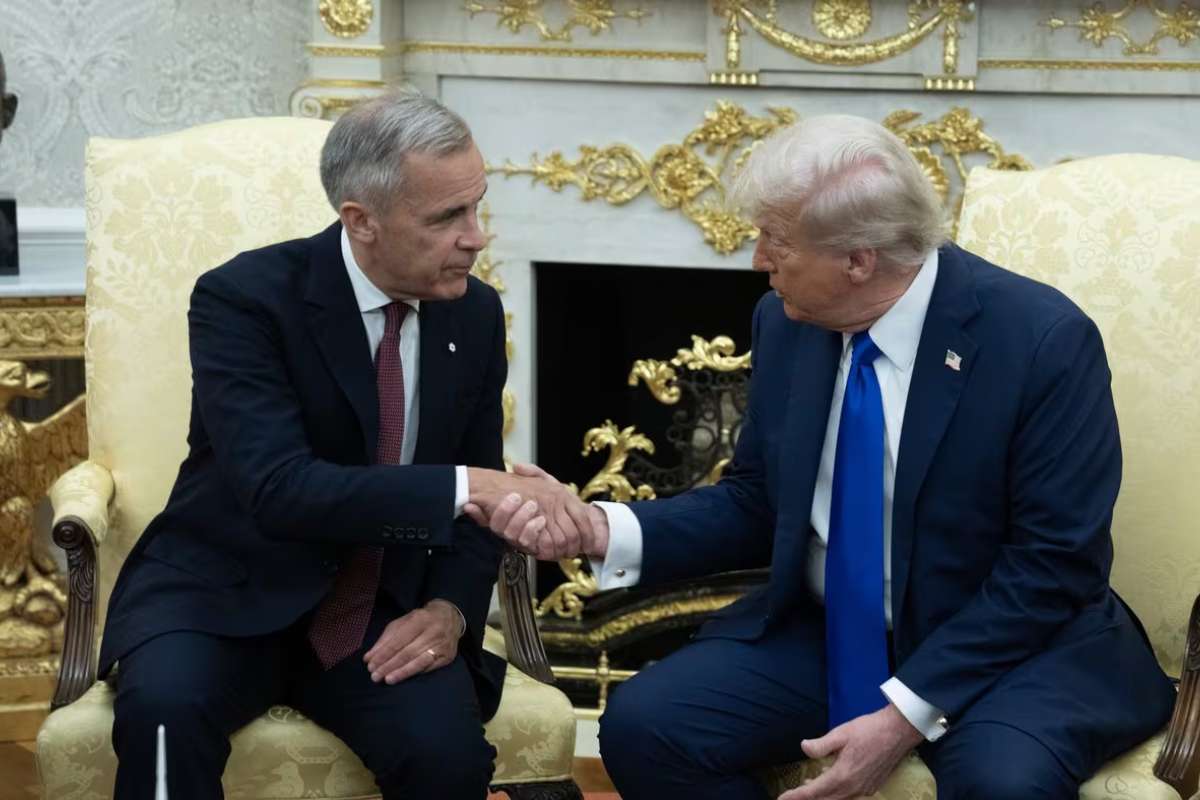TORONTO, Oct. 9 — Canadian Prime Minister Mark Carney raised the prospect of reviving the long-stalled Keystone XL pipeline project during a meeting with U.S. President Donald Trump at the White House this week, a Canadian government official said Wednesday.
The official, who spoke on condition of anonymity, said Trump appeared receptive to the idea. Mark Carney linked the potential energy cooperation to ongoing trade tensions over U.S. tariffs on Canadian steel and aluminum, currently set at 50%.
The proposed pipeline would transport up to 830,000 barrels of crude oil daily from western Canada’s oil sands to Steele City, Nebraska. From there, the oil would connect to existing lines feeding refineries along the U.S. Gulf Coast.
Project with a long history
The pipeline has faced years of political and environmental debate. TC Energy, the original developer, canceled the project in 2021 after President Joe Biden revoked its cross-border permit on his first day in office. Biden’s decision followed years of opposition from environmental groups who argued that burning oil sands crude would worsen climate change.
Trump previously revived the project during his first term after it was delayed under President Barack Obama. Carney’s discussion this week marks the first high-level effort to revisit the project since its cancellation.
Industry weighs options
A spokesperson for South Bow Corp., the operator of the existing Keystone pipeline network, said the company is not directly involved in current talks between the Canadian and U.S. governments.
“South Bow is supportive of efforts to find solutions that increase the transportation of Canadian crude oil. We will continue to explore opportunities that leverage our existing corridor with our customers and others in the industry,” the spokesperson said in an email statement.
Mark Carney, speaking in a live video call with business leaders in Toronto, said building major projects would “unleash Canadian energy” and strengthen economic ties with the U.S.
Pressure from oil-producing regions
The government of Alberta, a province heavily reliant on oil revenues, has urged Ottawa to secure a pipeline deal. Former Alberta Premier Jason Kenney said expanding pipeline capacity to the U.S. Gulf Coast remains the most cost-effective option for boosting exports.
“Strategically this would increase, not decrease our dependence on the U.S. export market,” Kenney said on social media. “But it would be a brilliant judo move to find common ground with the Trump administration and help him realize that the U.S. benefits from and needs its privileged relationship with Canada.”
Kenney added that greater energy cooperation could give Canada leverage in negotiations over U.S. tariffs.
Trade and energy ties
Mark Carney also addressed aluminum tariffs in Wednesday’s call, noting that Canada supplies 60% of the aluminum used in the U.S. He argued that producing equivalent volumes domestically would require the energy output of 10 Hoover Dams.
“For the U.S. to produce that much aluminum, it would need the equivalent of the energy of 10 Hoover Dams,” Carney said. “Is making aluminum really the best use of that power at a time when you’ve got the AI revolution and want to keep people’s electricity costs down at home?”
Mark Carney said Canada recognizes the shift in U.S. policy toward prioritizing domestic interests.
“Our relationship will never again be what it was,” he said. “We understand America first.”
Environmental and political hurdles
Any renewed effort to build Keystone XL would face significant opposition from environmental groups and legal challenges from U.S. states. Biden’s initial cancellation cited climate concerns tied to oil sands extraction, which produces more greenhouse gas emissions than conventional crude.
Analysts say a new project would likely require a fresh permit and face years of regulatory review. It remains unclear how quickly or whether the Trump administration would move to advance the pipeline.
For now, Canadian officials view energy cooperation as a potential bargaining tool in broader trade negotiations. The White House has not issued an official statement on the discussion.
Visit Oil Gas Energy Magazine for the most recent information.












